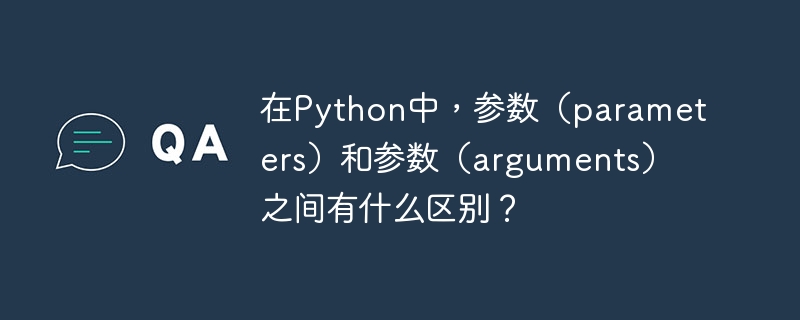

The concept of arguments and arguments is part of functions in Python. So, before continuing, let's learn how to create a function and functions with parameters.
A function is an organized, reusable piece of code that performs a single, related operation. Functions provide your application with better modularity and a high degree of code reusability.
Let’s create a basic function −
# Define a function
def sample():
print("Inside a Function")
# Function call
sample()
Inside a Function
Here, we are creating a function with parameters −
# Creating a Parameterised Function
def sample(str):
print("Car = ", str)
# Function calls
sample("Tesla")
sample("Audi")
sample("BMW")
sample("Toyota")
('Car = ', 'Tesla')
('Car = ', 'Audi')
('Car = ', 'BMW')
('Car = ', 'Toyota')
Parameters are defined by their names as they appear in the function definition. Parameters define the types of arguments a function can accept. So, based on the above example of a function with parameters, the following is one parameter, which is str −
# Function Definition def sample(str):
Parameters are the values actually passed to the function when it is called. So, based on the above example of a function with parameters, the following are the parameters, namely Tesla, Audi, BMW and Toyota−
# Function calls
sample("Tesla")
sample("Audi")
sample("BMW")
sample("Toyota")
Let’s see an example -
# Function Definition
def sample(name, rank):
print("Employee Name = ",name)
print("Employee Rank = ",rank)
# Function call
sample(rank = 3,name = "Tim")
Employee Name = Tim Employee Rank = 3
Above, name and rank are parameters of the sample() function.
The3 and Tim parameters of the sample() function.
Let's look at another example where we have **kwargs and a parameter −
def func(foo, bar=None, **kwargs): pass
func(10, bar=20, extra=somevar)
Above, foo, bar, and kwargs are the parameters of func().
the values 10, 20, and somevar are arguments of the func().
The above is the detailed content of In Python, what is the difference between parameters and arguments?. For more information, please follow other related articles on the PHP Chinese website!




